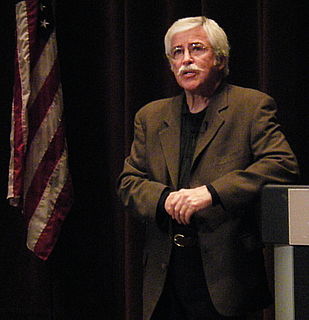A Quote by Louis Aragon
Most people have never known solitude.... But there are a few of the other kind who can go back to their rooms anywhere and close the door on the whole world, and feel that they need never emerge.
Related Quotes
When I announced on my Facebook page that I'm coming to Israel, people started telling me that I shouldn't go there, but I figured that if I'm not going to come here, then I guess I can't go back to the United States anymore and I can never go to Russia again and I should probably never go back to Germany and I should probably never go back to France and I should probably never go back to England....All I see here is a really beautiful city.
The thing that upsets me the most is the entitlement of people that will stand with a flag and say to some other people that they need to go back to where they came from. When, in fact, they also would need to go back to where they came from, because you need to go all the way back to the beginning.
I've never known a writer who didn't feel ill at ease in the world. We all feel unhoused in some sense. That's part of why we write. We feel we don't fit in, that this world is not our world, that though we may move in it, we're not of it. You don't need to write a novel if you feel at home in the world.
But the beginning of things, of a world especially, is necessarily vague, chaotic, and exceedingly disturbing. How few of us ever emerge from such beginning! How many souls perish in its tumult! The voice of the sea is seductive; never ceasing, whispering, clamoring, murmuring, inviting the soul to wander for a spell in abysses of solitude; to lose itself in mazes of inward contemplation. The voice of the sea speaks to the soul. The touch of the sea is sensuous, enfolding the body in its soft, close embrace.
For me, what I am making in the novel is a place to live. When I first switched from poetry to novels, I was asked why, and the metaphor I came up with was about poems as rooms. You can make a room perfect, but then you have to shut the door and never go back, whereas a novel is like a house - it can never be perfect, but you can make a life in it.
There is convincing evidence that the search for solitude is not a luxury but a biological need. Just as humans posses a herding instinct that keeps us close to others most of the time, we also have a conflicting drive to seek out solitude. If the distance between ourselves and others becomes too great, we experience isolation and alienation, yet if the proximity to others becomes too close, we feel smothered and trapped.
Solitude in the city is about the lack of other people or rather their distance beyond a door or wall, but in remote places it isn’t an absence but the presence of something else, a kind of humming silence in which solitude seems as natural to your species as to any other, words strange rocks you may or may not turn over.
I would love to be able to play anywhere, but to me the sweet spot is clubs and theaters, just because I feel like you lean in to tell a joke. You don't back up. Comedy lives in that area. I've played amphitheaters, big clubs, and pool halls, and the most fun rooms hold anywhere from 500 to 2,000 people. That intimacy is where comedy really lives.
My passionate sense of social justice and social responsibility has always contrasted oddly with my pronounced lack of need for direct contact with other human beings and human communities. I am truly a 'lone traveler' and have never belonged to my country, my home, my friends, or even my immediate family, with my whole heart; in the face of all these ties, I have never lost a sense of distance and a need for solitude.







































